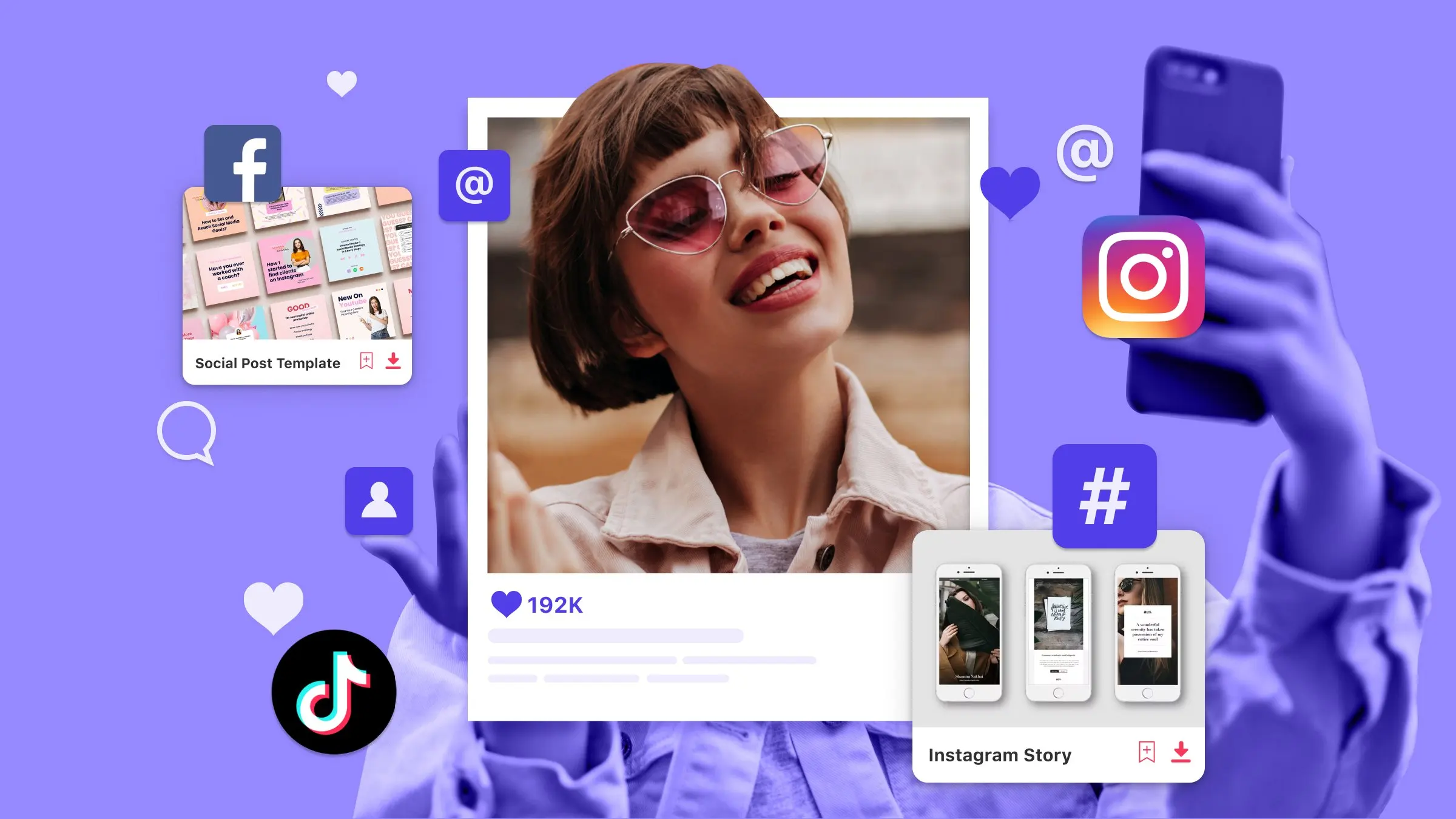Influencer marketing has grown up, hasn’t it? It’s no longer about celebrities with shiny smiles endorsing products they may not even use. Today, it’s about something deeper: trust. Audiences are savvier than ever, and they know when something feels fake. The takeaway? If you want your brand to thrive, you’ve got to keep it real.
Let’s unpack how authenticity is shaping influencer marketing in 2025—and why it’s the key to standing out.
1. Micro and Nano Influencers Are Taking Over
What’s trending?
Move over, mega-influencers. The spotlight now belongs to micro-influencers (10,000–100,000 followers) and nano-influencers (under 10,000 followers). Why? These creators feel like a trusted friend, not a celebrity behind a glossy filter.
Why it works:
Audiences crave realness, and smaller influencers deliver. Their content feels personal, their reviews relatable, and their interactions with followers? Genuine.
Example:
Think of a skincare brand partnering with a nano-influencer sharing her acne journey. Her posts—unfiltered and honest—create a bond with her audience that big-name influencers often can’t replicate.
Looking ahead:
Brands that prioritize these “small voices” are seeing big results.
Read more : SEO in 2025: Creating Websites That Ranks
2. Long-Term Partnerships Are Building Trust
The shift:
One-off shoutouts? They’re yesterday’s news. Brands are now investing in long-term relationships, turning influencers into authentic ambassadors.
Why it matters:
When an influencer repeatedly promotes a product, it feels genuine—not like a fleeting paycheck. Consistency breeds trust, and trust translates into loyalty.
Example:
Glossier has perfected this, building years-long partnerships with influencers who truly love their products. The result? Audiences believe in the brand because the influencers do too.
Pro tip:
Pick influencers who align with your values. Authenticity isn’t forced—it happens naturally when the fit is right.
3. Transparency Is a Must
What’s changing?
Audiences—and regulators—demand clarity. Sponsored posts now come with required disclosures like #Ad or #Sponsored, and for good reason: honesty matters.
Why it works:
When influencers are upfront about partnerships, it builds credibility. Hiding sponsorships, on the other hand, feels shady—and audiences notice.
Pro tip:
Own your sponsorships. A simple, “This post is sponsored, but I truly love this product!” goes a long way in keeping trust intact.
Read more : 10 Social Media Trends For 2025
4. AI is Making Campaigns Smarter
What’s the buzz?
Artificial intelligence is quietly reshaping influencer marketing. From finding the perfect influencers to analyzing campaign data, AI helps brands work smarter, not harder.
Why it matters:
AI allows for hyper-targeted campaigns that speak directly to the right audience, making every dollar count.
Looking ahead:
Expect AI tools to evolve even further—predicting trends, spotting breakout influencers, and optimizing content like never before.
Pro tip:
While AI is powerful, keep the human touch. No one wants to feel marketed to by a machine.
5. Purpose-Driven Campaigns Are Winning Hearts
The trend:
Audiences care about values, not just products. Campaigns that champion sustainability, mental health, or diversity create connections that go beyond transactions.
Why it works:
When a brand and influencer share a purpose, their message feels genuine. It’s no longer about selling; it’s about standing for something.
Examples:
- Sustainability: Influencers promoting zero-waste lifestyles.
- Mental Health: Campaigns normalizing conversations around emotional well-being.
- Diversity: Celebrating representation in all its forms.
Looking ahead:
Purpose-driven marketing isn’t a fad—it’s the future.
Read more : What Is Social Media Marketing?
6. Employees Are Becoming Influencers
What’s new?
Forget faceless corporations. Brands are now turning to their employees to tell authentic stories about the company.
Why it works:
People trust people. When employees share their experiences, it feels relatable and real.
2025 trend:
Expect more companies to empower employees as ambassadors, offering a glimpse behind the curtain.
7. Measuring Authenticity Becomes Smarter
The evolution:
Metrics like likes and reach are no longer enough. Brands are now focusing on engagement quality, trust, and audience sentiment.
Why it works:
A small, loyal audience can drive better results than millions of passive followers.
What’s new:
Emerging tools are helping brands measure emotional reactions and track meaningful interactions—game-changers for gauging success.
Read more : What is Search Engine Optimization (SEO)?
8. Virtual Influencers Are Gaining Ground
What’s happening?
AI-generated influencers are here, especially in niches like fashion and gaming. These digital personalities offer precision and consistency.
Why it’s tricky:
While innovative, they lack the relatability of real humans. Striking a balance is key.
Pro tip:
Blend virtual influencers with real ones to keep campaigns fresh while staying authentic.
Read more : What is Digital Marketing?
The Bottom Line: Authenticity Is Non-Negotiable
As 2025 approaches, one thing is clear: authenticity isn’t just a trend—it’s the foundation of influencer marketing. Whether you’re partnering with nano-influencers, empowering employees, or launching purpose-driven campaigns, building trust is everything.
The brands that stand out won’t be the loudest. They’ll be the ones who stay true to their values, connect genuinely, and put authenticity first.
Takeaway:
In a world full of noise, real connections are your strongest strategy.
We are a Digital Marketing Agency serving in India, USA, UK, Canada & UAE, From SEO to social media, we deliver results that boost visibility, leads, and ROI.

